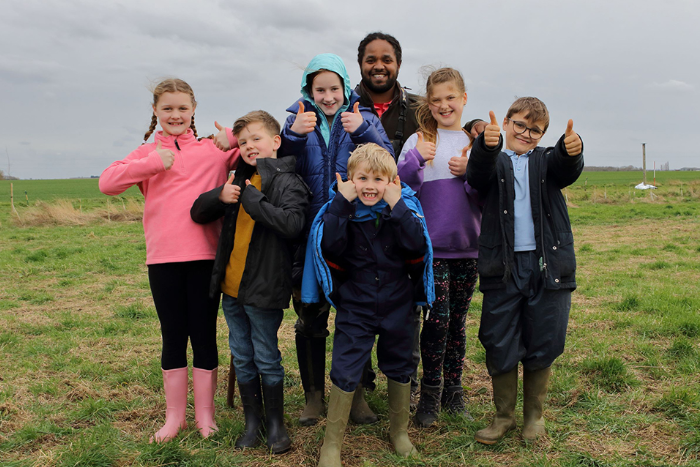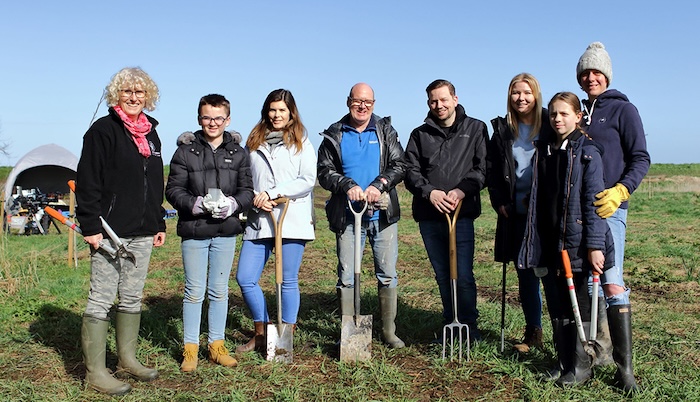
Help create wildlife havens
By Rachel Shaw
Lincolnshire Wildlife Trusts
A small group of us have gathered on the flood bank of a drain.
A telescope had been set up and we were taking it in turns to look. Across the field were two pairs of cranes. They were easy to see with the naked eye but through the telescope, the birds filled the view.
We could see their elaborate ruffle of tail feathers flutter in the breeze.
These impressive birds stand over a metre tall. They had disappeared entirely from the UK but are back and returned to the Lincolnshire Wildlife Trust’s Willow Tree Fen nature reserve in 2020 and are now regularly seen feeding on the adjacent fields.
For a moment, they’d taken attention away from what’s happening in the old playing field behind us.
The playing field is a hive of activity and we needed to get back. BBC Countryfile were there to film the start of the field’s transformation into a wildlife haven.
Presenters Hamza Yassin and Ellie Harrison were getting stuck into building dead hedges, making a hibernaculum and digging a bog garden. They’d been inspiring some of the local school children about wildlife especially the minibeasts which are already trying to move into the newly constructed minibeast hotel.
The playing field is part of Tongue End village in south Lincolnshire. It’s a long, thin village that stretches along one side of a road called Counter Drain Drove.
People living here are surrounded by arable fields and although they’ll see cranes, brown hares and barn owls in the fields, there’s virtually nowhere to walk or to be immersed in wildlife.
That’s why the Lincolnshire Wildlife Trust had been supporting them as part of the UK-wide Nextdoor Nature project funded by The National Lottery Heritage Fund. As well as the features to attract wildlife, there’s alsosurfaced paths and benches, plus a raised pond. It’s essential for the local residents that the space is accessible for everyone.
When BBC Countryfile heard about the community, they chose to film here to launch their new Wild Britain initiative.
Hot on the heels of BBC Wild Isles, Wild Britain has a target to record a million acts of kindness for nature across the UK. Wildlife is seriously depleted in Britain but every action, big or small, helps. Whether you’re digging a pond, feeding hedgehogs or growing herbs on your windowsill for bees and butterflies, you’re playing a vital part in nature’s recovery.
And you’re not alone, together we can create a network of wildlife-friendly places.
Watching the cranes emphasised this. What the residents of Tongue End were doing wasn’t in isolation. Their wildlife haven on the playing field will become part of a network of sites that also includes the Wildlife Trust nature reserves, gardens and farmland that’s being managed sympathetically. All these places will link together to create a nature recovery network.
Be inspired about actions you can take for wildlife and log them as part of Wild Britain:
https://www.wildlifetrusts.org/countryfiles-wild-britain

